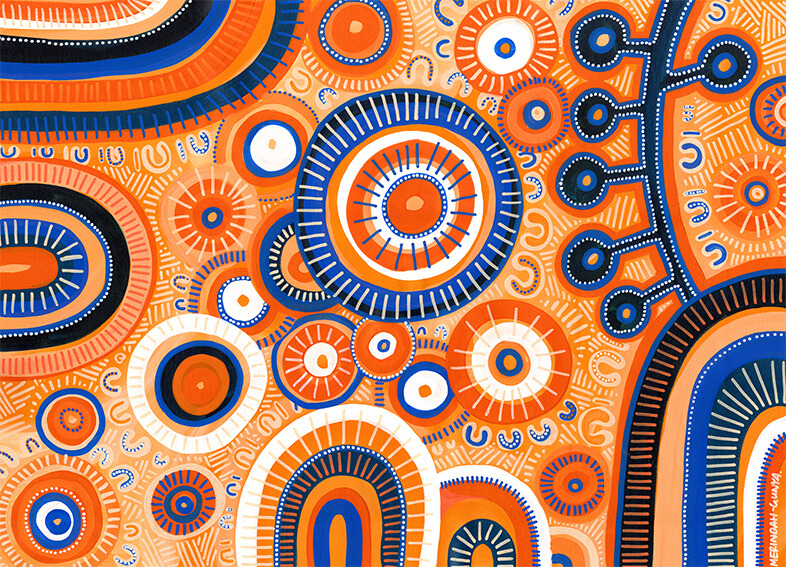Respect Victoria is delighted to present our Innovate Reconciliation Action Plan (RAP) and, with it, further our commitment to advancing reconciliation.

A message from our Chair
We understand reconciliation as an ongoing journey between Aboriginal and Torres Strait Islander peoples and non-Indigenous peoples to counter the impacts of colonialism, violent dispossession and racism experienced by First Nations peoples. We recognise that this journey is complex, non-linear, and importantly that it should not be the burden of Aboriginal and Torres Strait Islander peoples.
In the three years since producing our Reflect RAP, we have collectively witnessed the broader Australian community declining the opportunity to make milestone progress toward reconciliation. We recognise the significance of this, and the need for even greater efforts now to continue the journey to reconciliation.
A reconciled Australia will be one where all Australians understand and acknowledge that it is not only historic wrongs against Aboriginal and Torres Strait Islander peoples that have caused harm, but also recent – current – attitudes and actions. We know that, amongst additional inequalities, First Nations women, their children and their families experience disproportionate rates of violence because of the ongoing impacts of colonisation and systemic racism intersecting with the gendered drivers of violence against women. Recent research from the Australian Institute of Criminology evidences that Aboriginal women are up to seven times more likely to be killed, most often by an intimate partner.
Yet glimmers of progress endure.
At Respect Victoria, we have progressed through our Reflect RAP and towards our subsequent Innovate plan, as outlined in this document. It has been heartening to witness the dedication from our RAP Working Group and the commitment to reconciliation, to strengthening education and cultural safety from the broader Respect Victoria team.
We continue our journey with this Innovate RAP: the path for Respect Victoria to realise our vision for reconciliation. On this road are opportunities to forge and fortify mutually beneficial relationships. We aim to use our influence to promote reconciliation – through policy, research, governance and community engagement. Over the course of this RAP, we will remain engaged in continuous learning that centres the expertise and perspectives of Aboriginal and Torres Strait Islander communities – in particular, the wealth of knowledge and expertise of First Nations primary prevention practitioners and organisations.
A reconciled Australia is one where all Aboriginal and Torres Strait Islander peoples are safe, equal and respected, and live free from family violence and violence against women.
Professor Kate Fitz-Gibbon
Board Chair
Respect Victoria
Read the Reconciliation Action Plan
Download the PDF, or read our Innovate Reconciliation Action Plan online below.
Acknowledgements
Acknowledgement of Country
Respect Victoria acknowledges Aboriginal peoples throughout Victoria as the First Peoples and Traditional Owners and Custodians of the lands and waterways on which we rely. We pay our respects to their Elders, past and present. We proudly acknowledge Aboriginal communities throughout Victoria and their ongoing strength in practising the world’s oldest living cultures.
We acknowledge the significant and ongoing impacts of colonisation and commit to working alongside First Nations communities to effect change. We recognise the ongoing leadership role of these communities in addressing and preventing family violence and violence against women, and will continue to work in collaboration with First Peoples to eliminate these forms of violence from all communities.
About the artist
Bayley Mifsud is a contemporary Aboriginal artist born in the country town of Warrnambool, located in South-West Victoria. She takes great pride in her heritage as a descendant of the Peek and Kirrae Whurrong clans. For Bayley, practicing and sharing her culture through art and storytelling holds immense significance for herself, her family, and her community.
Her Aboriginal name is Merindah-Gunya meaning “Beautiful Spirit” in Peek Whurrong language, which was gifted to her through a naming ceremony on Country, supported by her Elders and community. Bayley now lives on Wurundjeri Country in Naarm (Melbourne) and has lived a large portion of her life there.
About the artwork
This story centres around central meeting places that form a vibrant community, deeply connected to the Traditional lands of Victoria. These spaces are surrounded by a diverse showcase of people, representing the rich multicultural community. The meeting places symbolise the strong bonds that unite the community, fostering connectedness, unity, and safety among all its people.
As individuals gather, they bring stories, traditions, and experiences, contributing to Respect Victoria's collective heritage. These gatherings are a testament to the enduring spirit of the land and its people, illustrating harmony and solidarity.
At its heart, this narrative celebrates relationships and a profound connection to the Country. The journey lines in the top left corner symbolise the continuous thread linking the past, present, and future of strong Aboriginal women. These lines pay tribute to their resilience, wisdom, and leadership, shaping the community and its bond with the land over generations.
Previous Reconciliation Action Plan
The Innovate Reconciliation Action Plan is Respect Victoria's second RAP, and follows our 2021 Reflect RAP.

